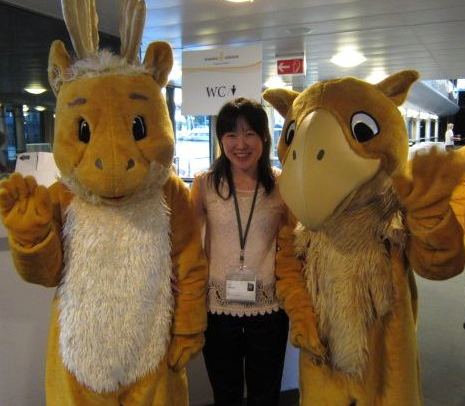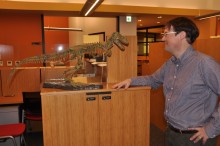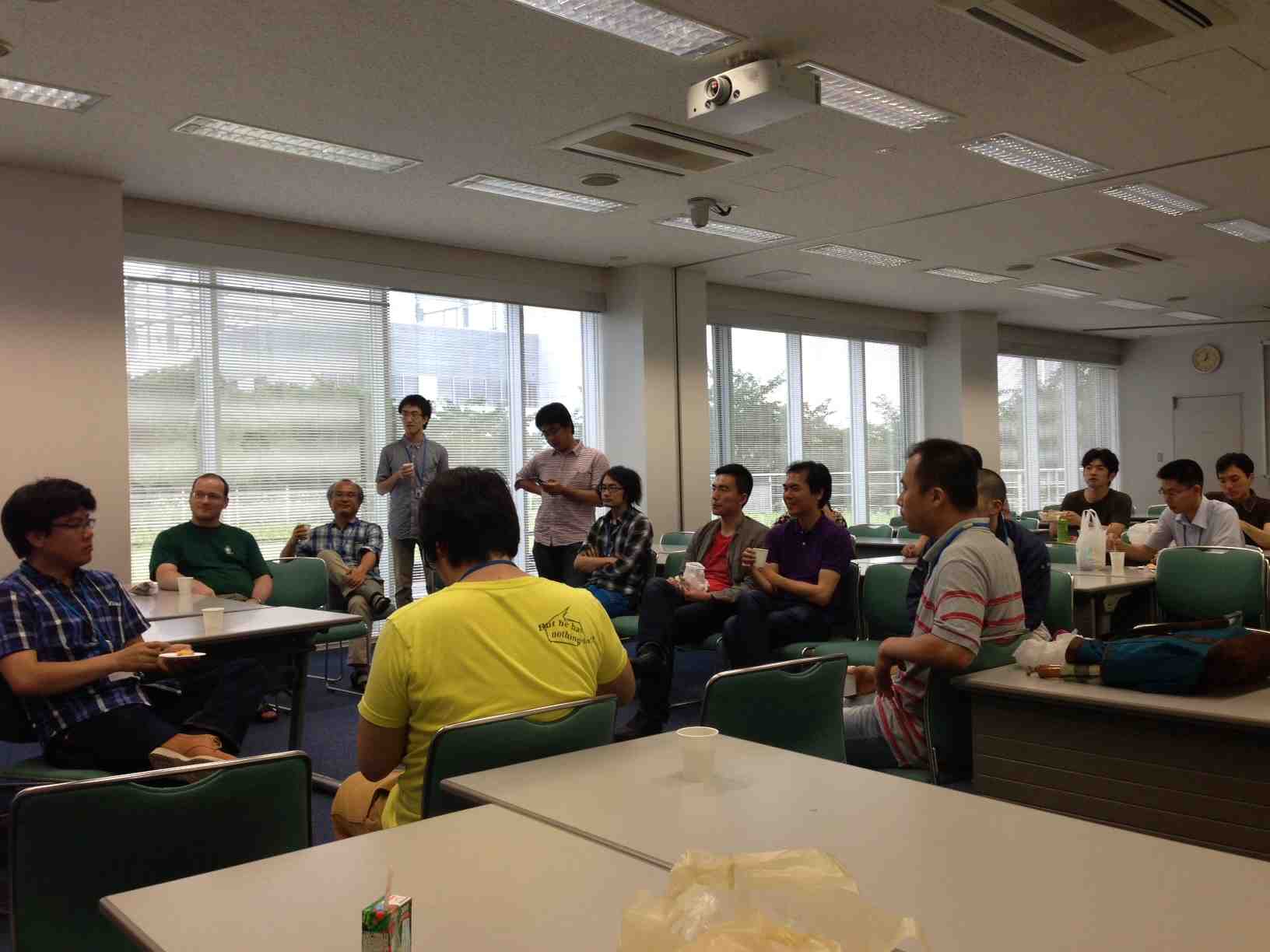|
|
|
|
Upcoming Events
|
|
iTHES Workshop
iTHES-Kavli IPMU-RESCEU Joint Meeting
7-8 July, 2014
Nishina Hall, Wako Campus
This joint meeting is one of our activities based on the research
partnership MOU
between iTHES and Kavli IPMU .
iTHES-HPCI Joint Summer School
"From Quarks to Supernova explosion - Challenges in Fundamental Physics -"
Date: July 22 (Tue) -26 (Sat), 2014
Place: Yukawa Institute for Theorerical Physics (YITP), Kyoto
http://www.jicfus.jp/field5/jp/140722-26summerschool/
iTHES Workshop
Supernovae and Gamma-Ray Bursts 2014
Aug.25(Mon)-27(Wed), 2014
Ookouchi Hall
RIKEN Symposium - iTHES workshop on
Thermal Field Theory and its applications
Date: Sep.3(Wed)-5(Fri.), 2014
Place: Ookochi hall
http://www.riise.hiroshima-u.ac.jp/TQFT/
iTHES-IPMU-Osaka Joint Symposium
Tentative date: Nov. 6 (Thu.) 2014 (*** Note that the date has not yet been fixed. Likely different from previously announced ones ***)
at Kavli IPMU, Univ. Tokyo (http://www.ipmu.jp/ )
|
|
|
Event Report
"iTHES Weelky Coffee Meeting Continued"
On 4th July, iTHES Weekly Coffee Meeting was held at the large meeting room on the second floor of the Main Cafeteria. More than 25 iTHES members from all areas have joined, and enjoyed coffee + cake (whichTada san has kindly brought for us) + chat/discussion after some brief self-introduction of each participant. Several people brought their lunch to the meeting room, which is actually a very good idea. In the next meeting (11th July), Tetsuo Hatsuda will give a short presentation on the future of iTHES. See you then !
|
|
|
Person of the Week
Ayaka Sakata
Self-introduction
My name is Ayaka Sakata, a SPDR in theoretical biology laboratory.
I received Ph.D in 2011 from the University of Tokyo, graduate school
of arts and sciences, and after that I worked in Tokyo Institute of
Technology for 3 years as a JSPS fellow. I moved to RIKEN this April.
I am a member of "Initiative for High-Dimensional Data-Driven
Science through Deepening of Sparse Modeling''.
I am working in the interdisciplinary field of spin-glass theory and
statistical machine learning. Analytic tools developed for spin-glasses
sometimes give theoretical explanations to heuristics in machine
learning based on phase transition pictures.
A recipe for the machine learning is how to determine the
combination of loss function and regularization, which correspond to
Hamiltonian. Statistical mechanics is a potent tool for
machine learning, in particular when one would like to evaluate the
learning performance approximately.
My current research theme is learning problems of appropriate
overcomplete bases for sparse representation of given data
that is seemingly dense. I am also interesting in the evolution of
redundant genetic code from the viewpoint of coding problems.
|
|
|
|
|
|


